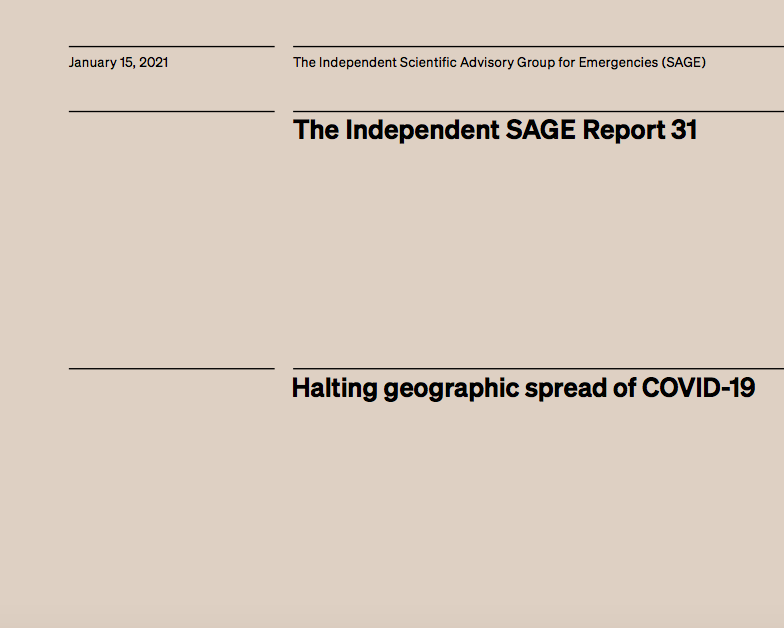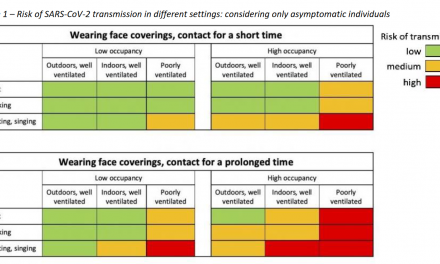The virus causing COVID-19 spreads readily between people and it is this characteristic that makes it particularly difficult to control. Measures such as the wearing of face coverings, social distancing, hand hygiene, and improved ventilation all combat interpersonal spread. However, another significant way that the virus spreads is that people who are infected, particularly asymptomatic individuals, may carry it with them as they move about in the course of their activities. We should be paying attention to situations where people who are infected travel to other communities, or arrive in the UK from abroad, and spread the virus after they have arrived. Within communities, we take measures to prevent transmission by limiting the access that people have to opportunities to mix with others who are outside their normal household. Retail outlets may be closed for periods, employees may be required to work from home, opportunities for spending leisure time in pubs, restaurants, cafés, gyms, or at sporting events may be severely restricted. But there has been little focused attention on travel across within and across national borders and it has taken the emergence of new variants to highlight the issue. SARS CoV-2 genetic analysis demonstrates how rapidly the virus, and its variants, emerge and spread. Importation occurs many weeks or months before detection of these variants, and from a range of countries, illustrating the urgent need to establish a comprehensive border control policy.
Halting geographic spread of COVID-19




